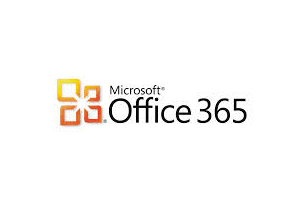 “When I wrote ‘The World Is Flat,’ I said the world is flat. Yeah, we’re all connected. Facebook didn’t exist; Twitter was a sound; the cloud was in the sky; 4G was a parking place; LinkedIn was a prison; applications were what you sent to college; and Skype, for most people, was a typo.”
“When I wrote ‘The World Is Flat,’ I said the world is flat. Yeah, we’re all connected. Facebook didn’t exist; Twitter was a sound; the cloud was in the sky; 4G was a parking place; LinkedIn was a prison; applications were what you sent to college; and Skype, for most people, was a typo.”
-Thomas Friedman, Author and Journalist, New York Times
On August 1, 1988, Bill Gates introduced a product that became more than a standard; it became Microsoft’s most profitable product with ubiquity unmatched by even Coca Cola or Chevrolet. This product is the Microsoft Office Suite, which over a billion people worldwide now use, and it can be found in classrooms, in homes, and in businesses all over the US. Chicago is no different.
Since creating Office, Microsoft has maintained a regular schedule of updates; ranging from weekly security fixes, and small patches to the software, to major ‘Service Pack’ updates with minor overhauls of the code, all the way up to milestone builds which included a new title, and required a new software license.
While Microsoft has been working furiously to keep Office relevant, the technology that provides our networks has been evolving very quickly. In recent years, Chicago businesses have witnessed massive increases in Internet bandwidth and reliability, opening doors to new ways of working, foremost among them, the ‘cloud.’ The cloud lives on the other end of these high-speed networks in large data centers where IT specialists keep hardware maintained, system redundancy, and security is a top priority. These features have led business to count on the cloud for critical data backup duties, and rightly so. However, the cloud can be much more than reliable backup, and Microsoft’s newest Office product, 365, is a perfect example.
Upgrade Cycle; two words that budget minders never want to hear, and yet everyone knows exactly what they mean; new Office software, maybe new hardware, certainly new licenses, and definitely more hours billed by your IT people. Nevertheless, it is how every business has been doing it for decades.
Office 365 is here to break that cycle. Microsoft realized the prognosis as many other companies began offering cloud-based applications that leveraged the available bandwidth and cloud-based computing power, and rather than fight the trend, Microsoft jumped right in. Office 365 represents a sea change in philosophy, moving the venerable suite of applications off every desk, and into the cloud while maintaining the traditional look and feel.
Upgrading to Office 365 is simple with the help of a Microsoft Partner, and it brings with it some major advantages.
Cost: The traditional lifecycle of Microsoft Office has been roughly three years, and the license which is attached to a machine only supports that version; new version of Office, new license. During those three years, you also pay for IT support, power and cooling, and the occasional hardware failure, and then of course—upgrades. However, Office 365 is a subscription based on your specific needs as identified with your Microsoft Partner. Since the hardware 365 is running on is in the cloud, you have no additional hardware expenses, or the power and cooling to worry about. Additionally, the software support, patches, security updates, even major revisions—that all happens seamlessly in the cloud, no IT expert needed on site.
Accessibility: This is where the cloud trounces the old desktop model. The only software you need to access Office 365 is a browser with an Internet connection. A smartphone, tablet, or laptop, even a borrowed machine at an Internet café can get you to your important documents, email, spreadsheets, contacts, and more. Your license is no longer attached to a machine, it is attached to you.
Teamwork: If you’ve ever been away from the office, you know how frustrating it is to get any useful work done. With Office 365, your team’s work is kept current, and is shared in the cloud. Need to see that new revision? It is already waiting; you can check it from your tablet in the taxi. Even if you drop your laptop into the lake, you can log on from another computer and all your data will still be there.
A license for Office 365 also includes Exchange for email, SharePoint for documents, and Microsoft’s comprehensive communications system, Lync. Microsoft has also made a major push to have Office 365 licenses included with many new mobile devices on all three major platforms; so numerous people already have access from their own devices.
Small businesses in the Chicago suburbs looking for an IT solutions provider that understands the importance of mobility and cloud computing turn to 101 Digital. It is time to free yourself from the upgrade cycle, contact 101 Digital today to make the switch to Office 365. To keep up with the news and other shenanigans at 101 Digital, follow @bccarthur, and to join in the conversation, find 101 Digital on Facebook.
